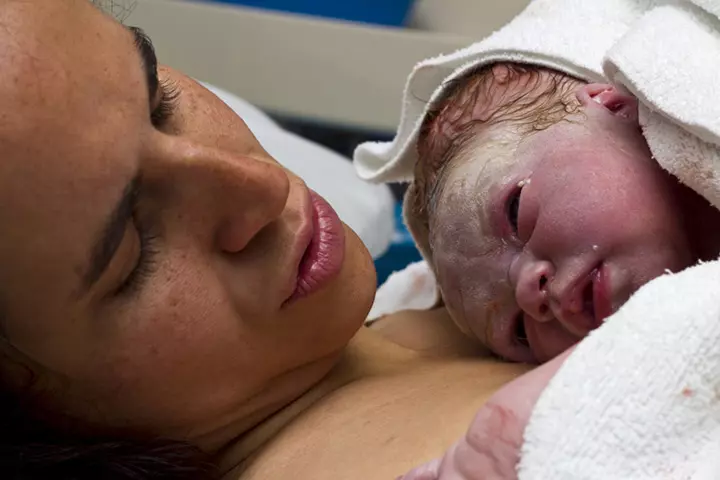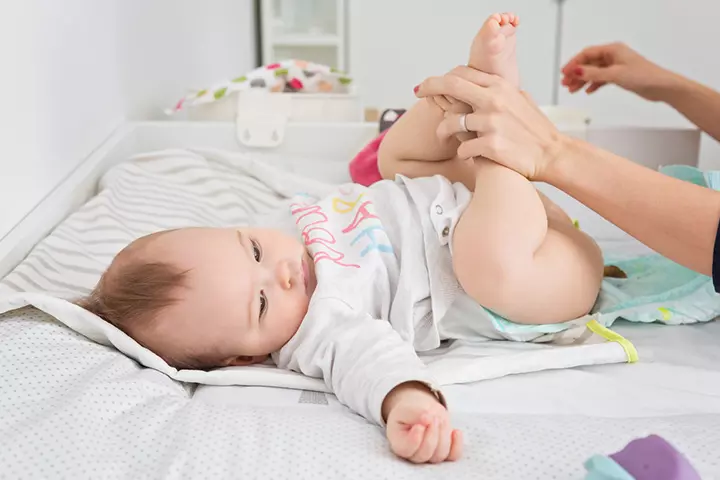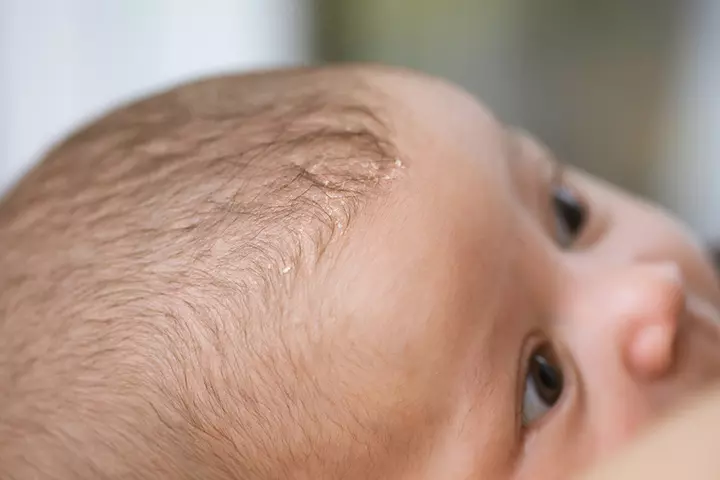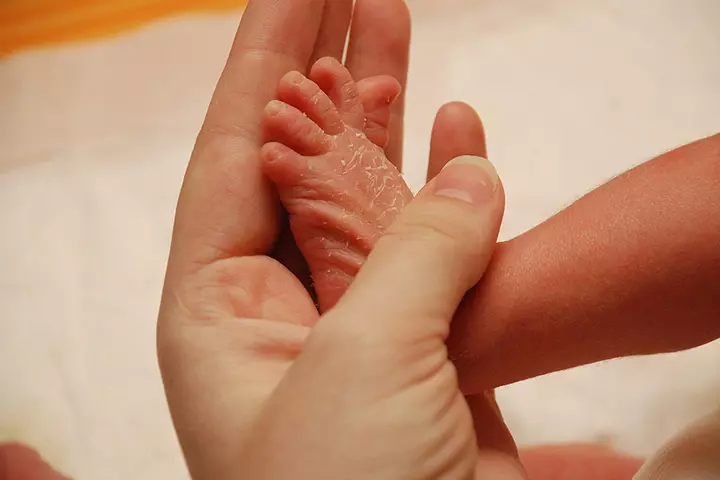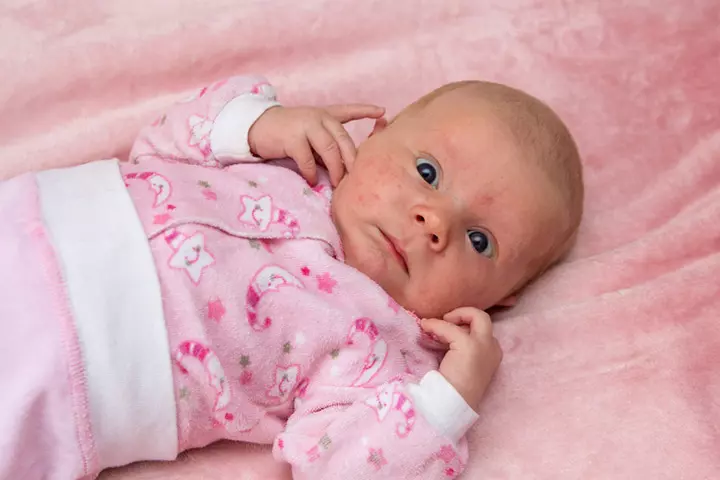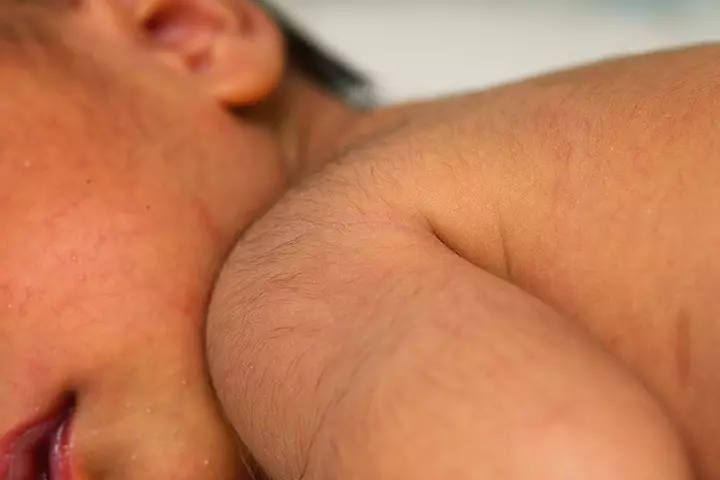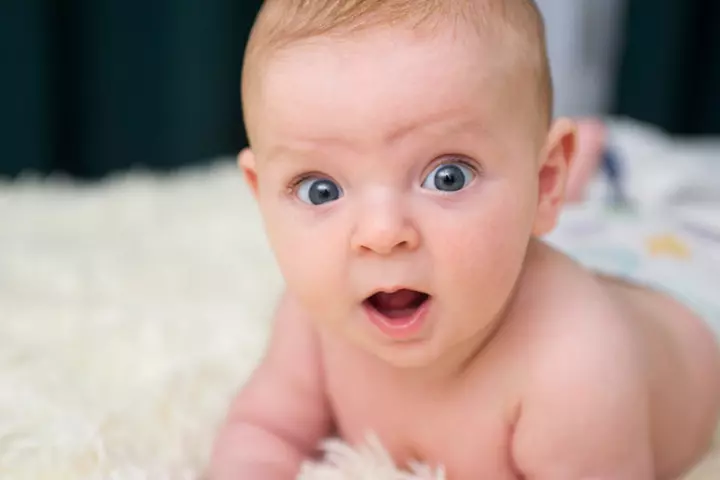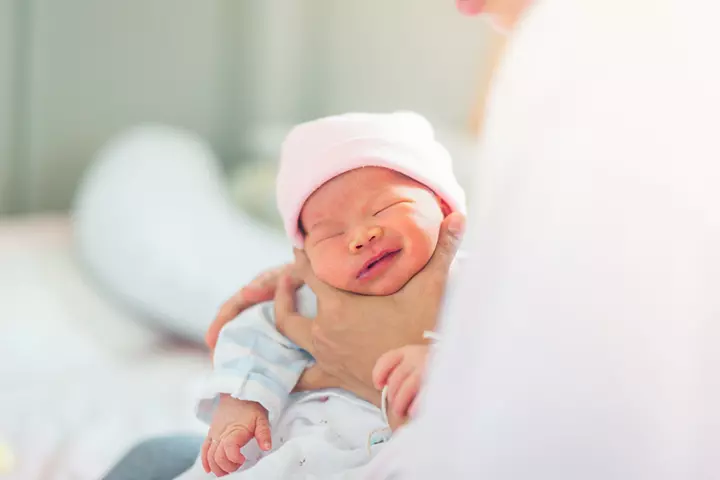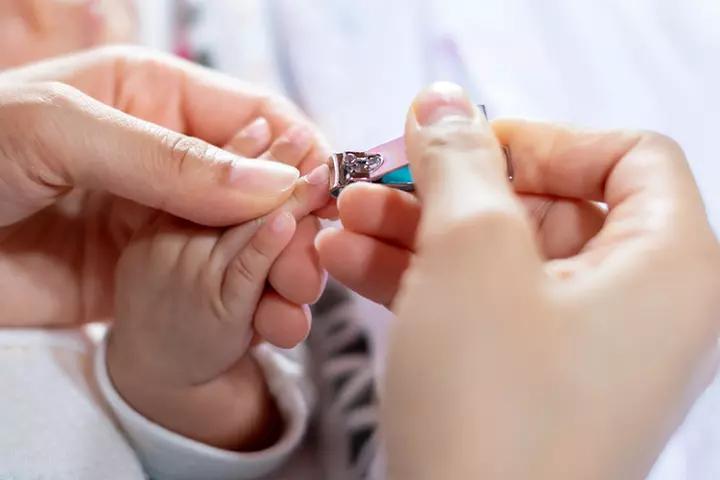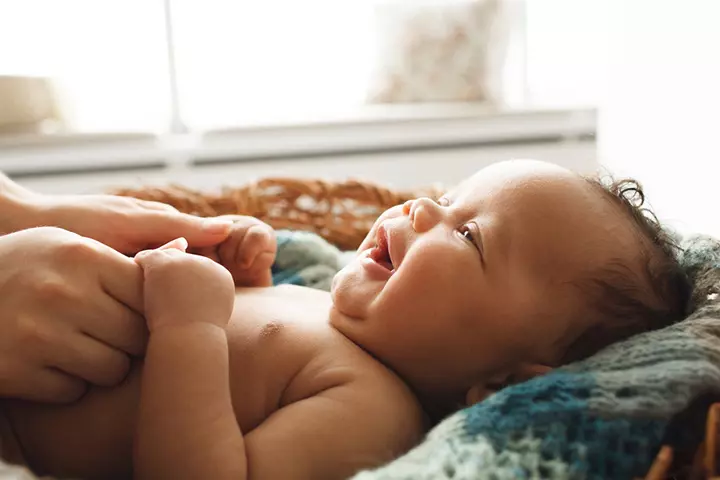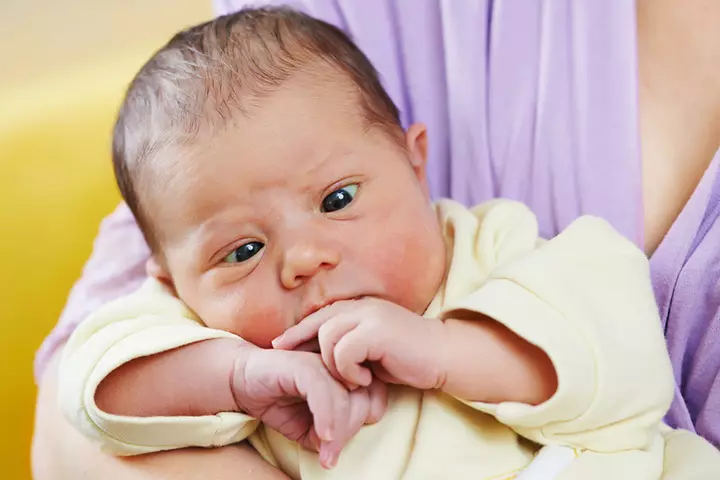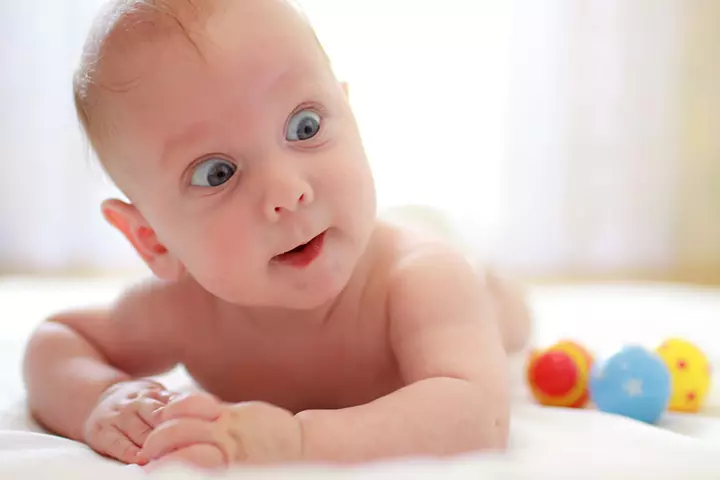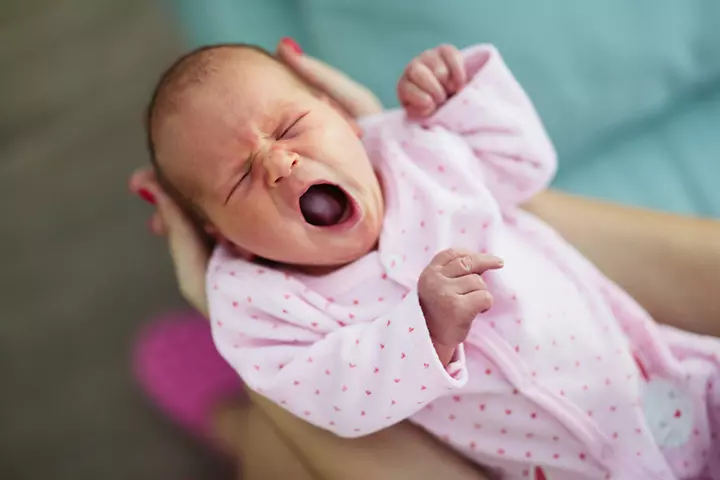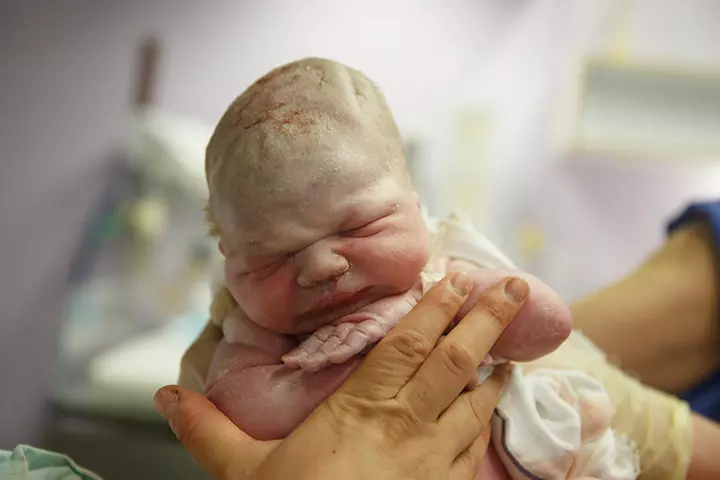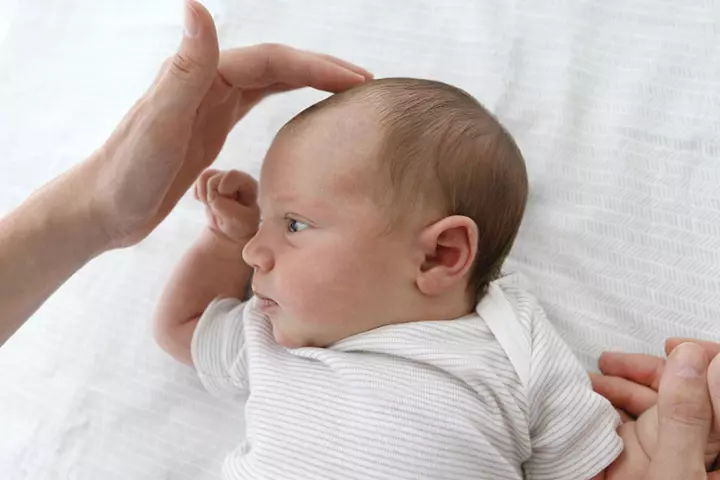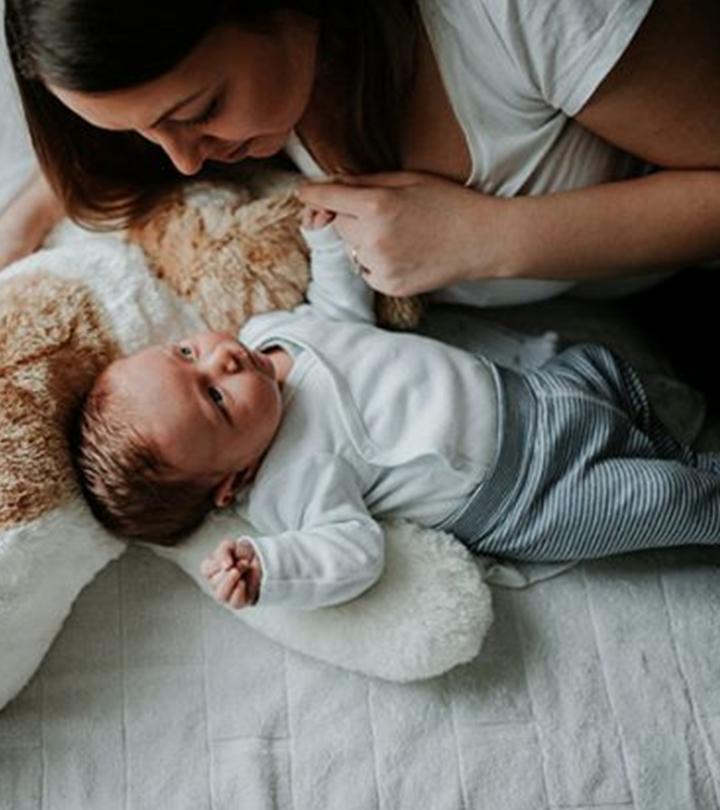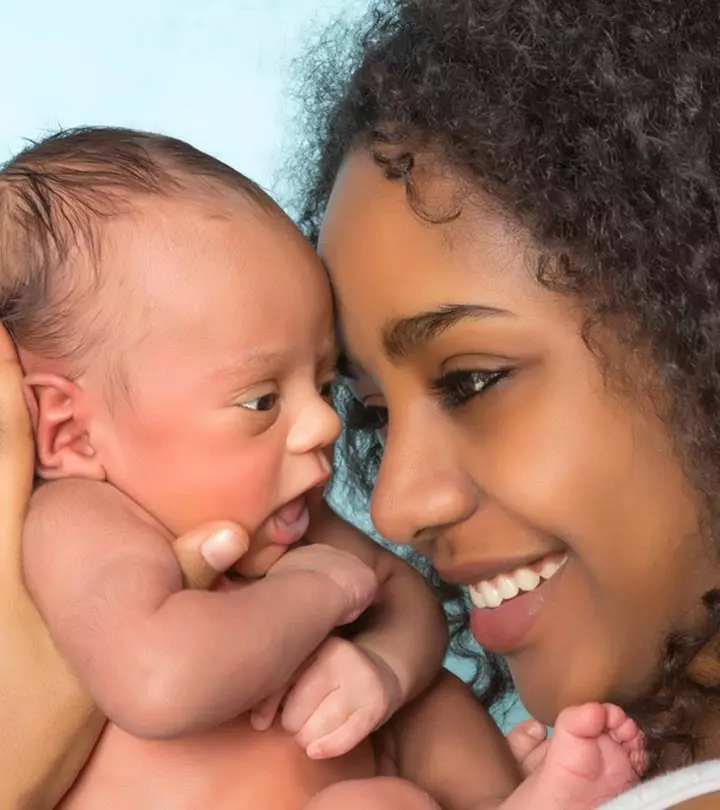
Image: Shutterstock
When a woman is expecting a baby soon, she starts imagining how her baby might look. She pictures the baby to be all pink, soft, and nestling in her arms quietly. But this is far from reality. In fact, some new moms might be completely taken aback on seeing their newborn – all squishy and grimy the moment they are born. A far cry from the visuals of smiling, babbling babies that we are used to. However, there is nothing to freak out about a newborn’s appearance or behavior. The simple case is that you’re not aware of what’s normal. So, to help you out, here’s a list of some of the weird things about newborns that are completely normal:
1. Is It An Alien? A Bird? No. It’s Your Baby!
Right after birth, your baby will be covered in birth fluids and blood, giving them a weird look. It will be nothing like what you’ve imagined. But it’s nothing to worry about. Your baby will look better after the first cleansing by the nurse.
2. The Scary First Poop
Some new moms are scared out of their wits when they see their baby’s first poop – a dark green/black color. However, this is meconium which consists of mucus, amniotic fluid, cells, bile and other stuff that the baby would have ingested in the womb (1).
3. Weird Hair Pattern
Some babies are born with a weird patch on their scalp. This is known as cradle cap and occurs due to fungal infection. This usually goes away with regular cleansing of the scalp with a mild shampoo and brushing the hair with a soft brush (2).
4. Dry, Flaky Skin
Your baby’s skin will start peeling soon after birth. This is because a newborn’s skin tends to be dry after having spent 9 months in the amniotic fluid. It is a natural process of shedding older skin. Just keep the baby hydrated, avoid exposure to cold air, and moisturize the baby with a mild moisturizer and the skin will soon be normal (3).
5. Those Early Pimples…
Baby acne is pretty common and usually appears on the face, upper back and neck. This is because of the maternal hormones still present in the baby. This typically goes away on its own. However, if it persists even after 6 weeks from birth, check with the pediatric dermatologist (4).
6. ..And The Hairy Body
Your baby will have hair all over the body. This is known as lanugo. This is normal in newborns and goes away on its own (5).
7. They Are Jumpy
Your baby’s reflexes are yet to develop fully, which is why your baby might get easily startled at the slightest of the sound (6).
8. Hiccups
Don’t be surprised if your baby starts getting hiccups. While the real reason for this is still unknown, it is commonly believed to help expel gas from the newborn’s system. Just burp the baby well after a feed and that should help (7).
9. Beware Of The Claws
Your baby will have brittle but sharp nails after birth. They are quite harmful as babies can gorge themselves with those sharp nails. Keep them covered with mittens until you can clip them.
10. Swollen Genitals
Don’t freak out if you find your baby boy or baby girl’s genitalia swollen. This is normal and could be due to various reasons including exposure to maternal hormones. This settles on its own, but do check with the pediatrician if it persists for a long time and causes discomfort during urination (8).
11. Are The Eyes Crossed?
Soon after birth, newborns open their eyes. Although they can see, they don’t know to focus well yet. That is why their eyes might seem crossed. But this focus gets better within 2-3 months (9).
12. That Weird Expression Means Poop Time
You might be playing happily with your baby when suddenly your baby gives a weird expression. Don’t worry. In all probability, your baby might be pooping.
13. Sleep Movements
Don’t get misled by those dreamy pictures of babies sleeping happily in their cribs. For all you know, your baby might be a restless sleeper. Pulling legs to chest, moving side to side, or flailing arms (if not swaddled) are all normal movements during sleep.
14. Odd Shape Of Head
Your newborn’s head will look anything but the perfect round. This is due to the effect of passing through the birth canal. This bizarre shape of the head usually goes away after a few days (10).
15. Soft Spots
As the newborn baby’s skull bones are often separated, you’ll be able to feel two soft spots on the head known as fontanels. This is completely normal and will harden within 6 to 12 months (11).
Now that you’ve been through the list, we bet you didn’t know some of them were perfectly normal. So, heave a sigh of relief and enjoy your time with your baby – fearlessly.
Community Experiences
Join the conversation and become a part of our nurturing community! Share your stories, experiences, and insights to connect with fellow parents.

